
Landschaft in PontAven Paul Gauguin schilderijen Paul Als reproductie kunstdruk of als
Institute of Fine Arts, New York University March 2011 Paul Gauguin styled himself and his art as "savage." Although he began his artistic career with the Impressionists in Paris, during the late 1880s he fled farther and farther from urban civilization in search of an edenic paradise where he could create pure, "primitive" art.

“Gauguin Portraits” at The National Gallery until 26 January 2020 KidsArt!
No, he can't have been: it was December and far too late in the year for sunflowers. But it's quite probable that Van Gogh painted a copy of one of his own sunflower pictures around this time. The landscape in the background is also fictional: unlike Van Gogh, Gauguin liked to work from his imagination. They often argued about this.

Schilderij Gauguin, Day of God mypainting
He left the right-hand side of the painting unfinished.
Gauguin painted this man while he was living with Van Gogh in the southern French town of Arles. They worked side by side and both painted portraits of this distinctive-looking man. It may be Joseph Ginoux, a café owner and friend of Van Gogh.

Le Muse PAUL GAUGUIN "Il guardiano dei porci", 1888, olio su tela, 93 x 74 cm Los Angeles
56, rue Notre-Dame-de-Lorette, Paris, France. Paul Gauguin was born in Paris in June 1848, amidst the bloody 'June Days' of the 1848 Revolution. His parents were liberals. His grandmother had organised early socialist movements, and was under active surveillance by the police. Gauguin would grow to idolise her.
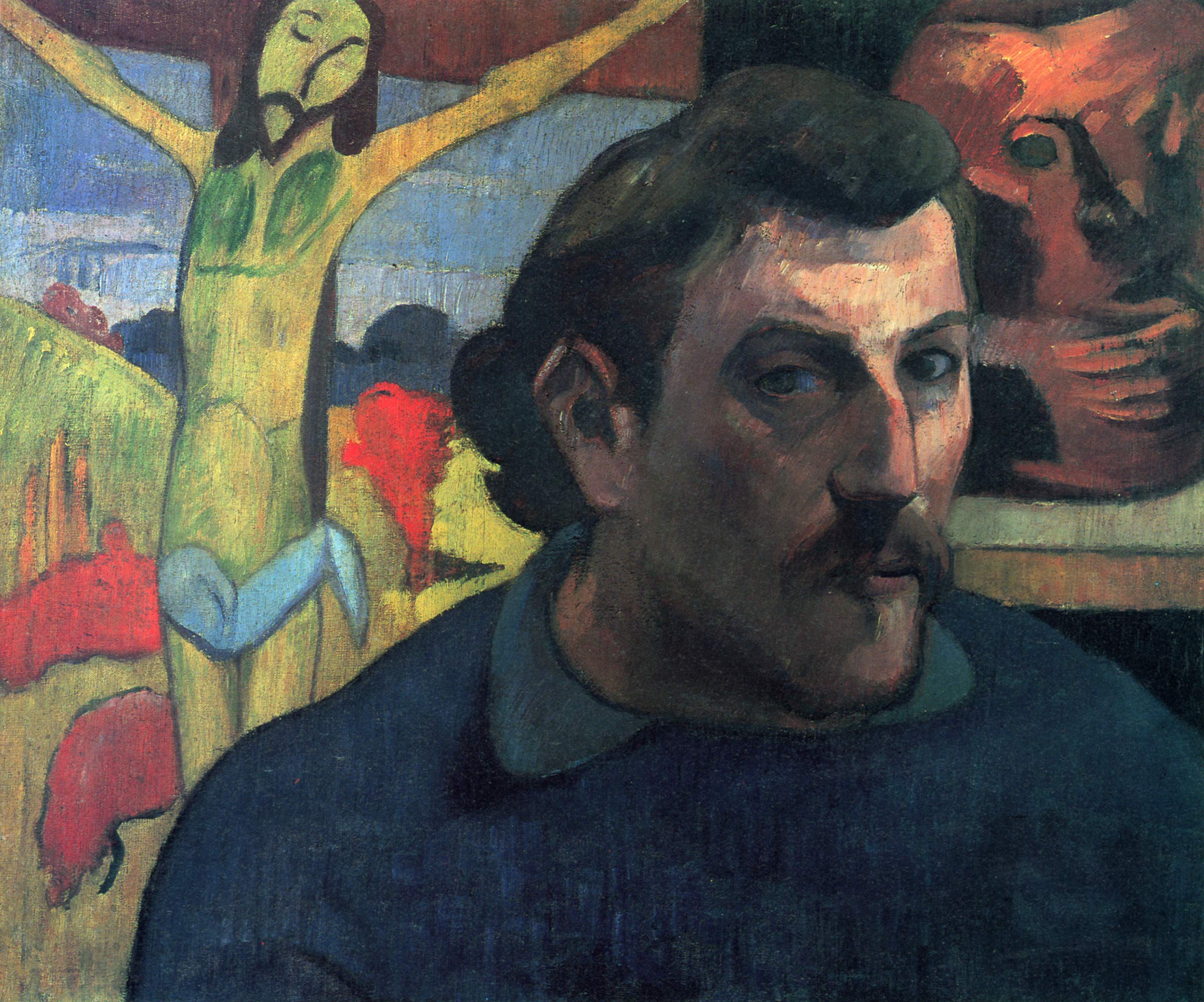
Paul Gauguin Art Museum AK
Van Gogh painted his friend, the artist Paul Gauguin, in their studio in the Yellow House. He made this small portrait on jute - an unusual but inexpensive material. Gauguin had bought some in Arles for the two of them to use. The coarse structure of the cloth made painting difficult, so Van Gogh applied the paint thickly and opted for a strong red-green contrast.
[He wrote](http.
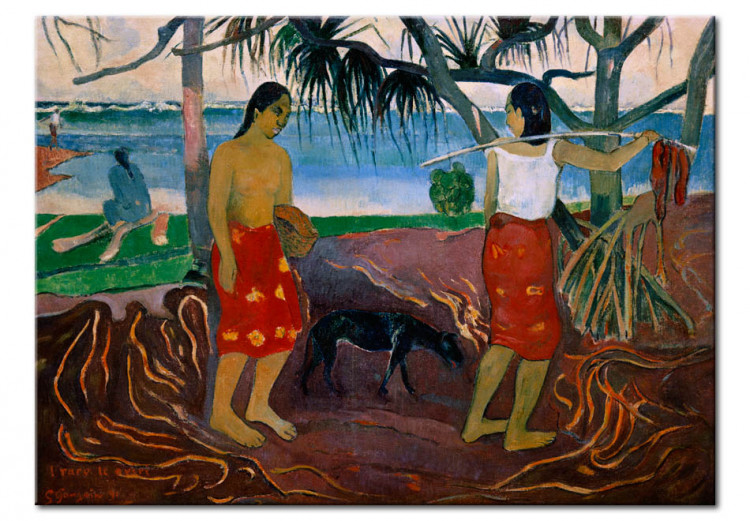
Gauguin obras, gauguin cuadros, paul gauguin obras, cuadros de gauguin, pinturas de gauguin
Paul Gauguin (New York: Abrams, 1983), 28. Eugène Henri Paul Gauguin (UK: , US: , French: [øʒɛn ɑ̃ʁi pɔl ɡoɡɛ̃]; 7 June 1848 - 8 May 1903) was a French Post-Impressionist artist. Unappreciated until after his death, Gauguin is now recognized for his experimental use of colour and Synthetist style that were distinct from Impressionism.

FilePaul Gauguin 011.jpg Simple English Wikipedia, the free encyclopedia
[2] is een schilderij van de Franse kunstschilder Paul Gauguin, olieverf op doek, 101,5 x 77,5 centimeter groot, gemaakt in 1892. Het toont twee jonge vrouwen op Tahiti, gemaakt tijdens het eerste verblijf van de schilder op dat eiland.
.jpg)
Rue de Tahiti Paul Gauguin Estampe d'art
Gauguin was a source of inspiration for Les Nabis and other painters and is seen as one of the most important Post-Impressionists. Paul Gauguin: 5IE-1880-55, Les Pommiers de l'Hermitage (Seine-et-Oise) =!? 1879, CR52, SDbr, Apple trees at l'Hermitage III, 88×115, Philadelphia MA (iR10;iR64;iR2;R37,p41;R181,no52;R128,no31;R2,p311;R90II,p149+165;M28)
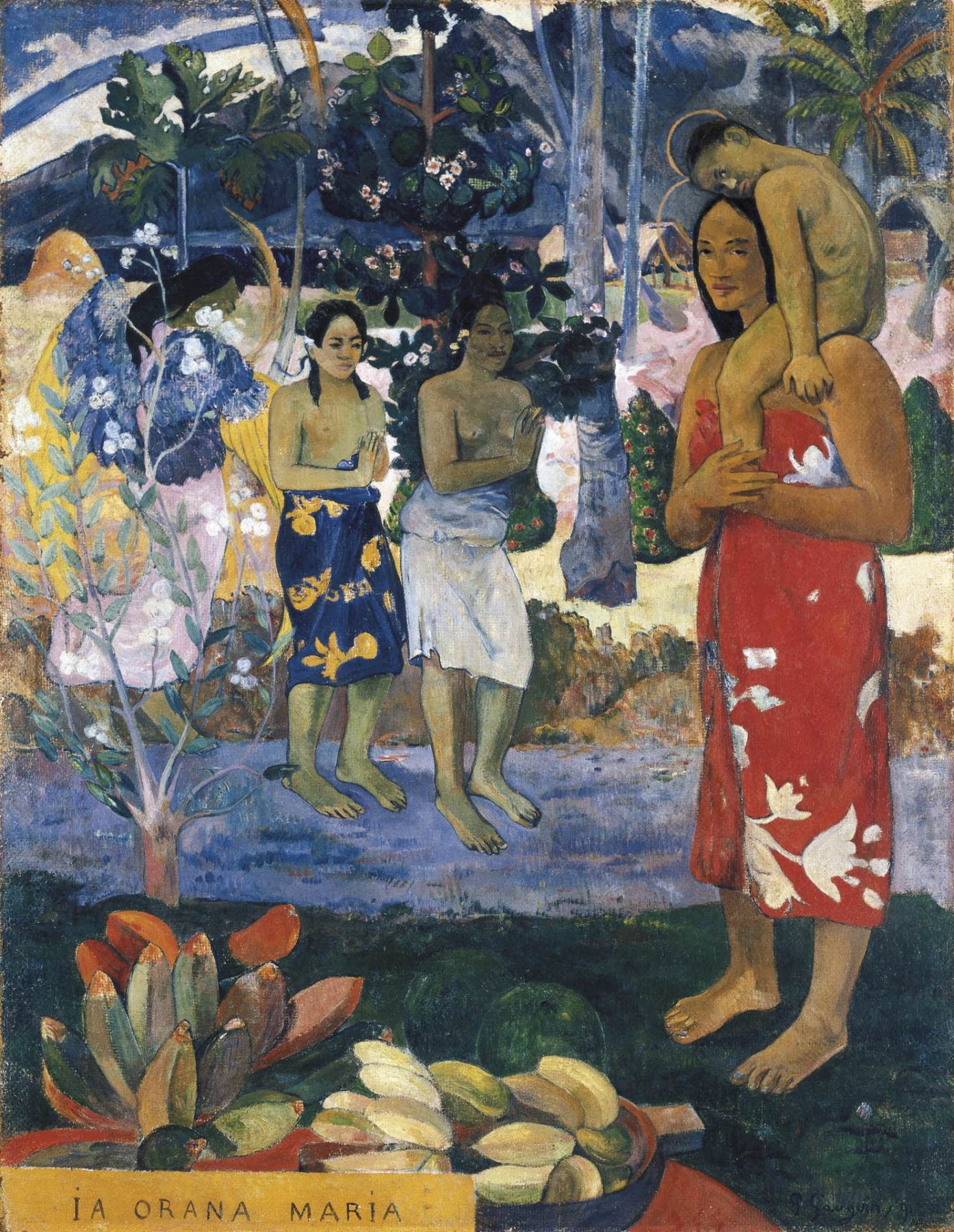
Paul Gauguin e la Polinesia le isole di Tahiti e Hiva Oa del pittore francese
Eugène Henri Paul Gauguin Parijs, 7 juni Atuona op de Marquesaseilanden 8 mei) was een Franse kunstschilder. Zijn werk wordt meestal gekenschetst als postimpressionistisch, dat van na 1891 als symbolistisch . Na zijn opleiding in Orléans bracht Gauguin zes jaar door in de koopvaardij. Later diende hij in de Franse marine.

This Gauguin Painting Sold for a Record Breaking 300 Million Complex
Eugène-Henri-Paul Gauguin Born: June 7, 1848, Paris, France Died: May 8, 1903, Atuona, Hiva Oa, Marquesas Islands, French Polynesia (aged 54) Notable Works: "Be in Love and You Will Be Happy" "By the Sea" "Old Women of Arles" "The Yellow Christ" "Tropical Vegetation" "Vision After the Sermon" "Where Do We Come From? What Are We?
Artwork Replica Landscape with peacocks, 1892 by Paul Gauguin (18481903, France)
Paul Gauguin was a French Post-Impressionist artist, whose work deeply influenced the French avant-garde and modern artists, such as Pablo Picasso and Henri Matisse. As a descendant of the Peruvian nobility, he spent his early childhood in Lima, Peru.
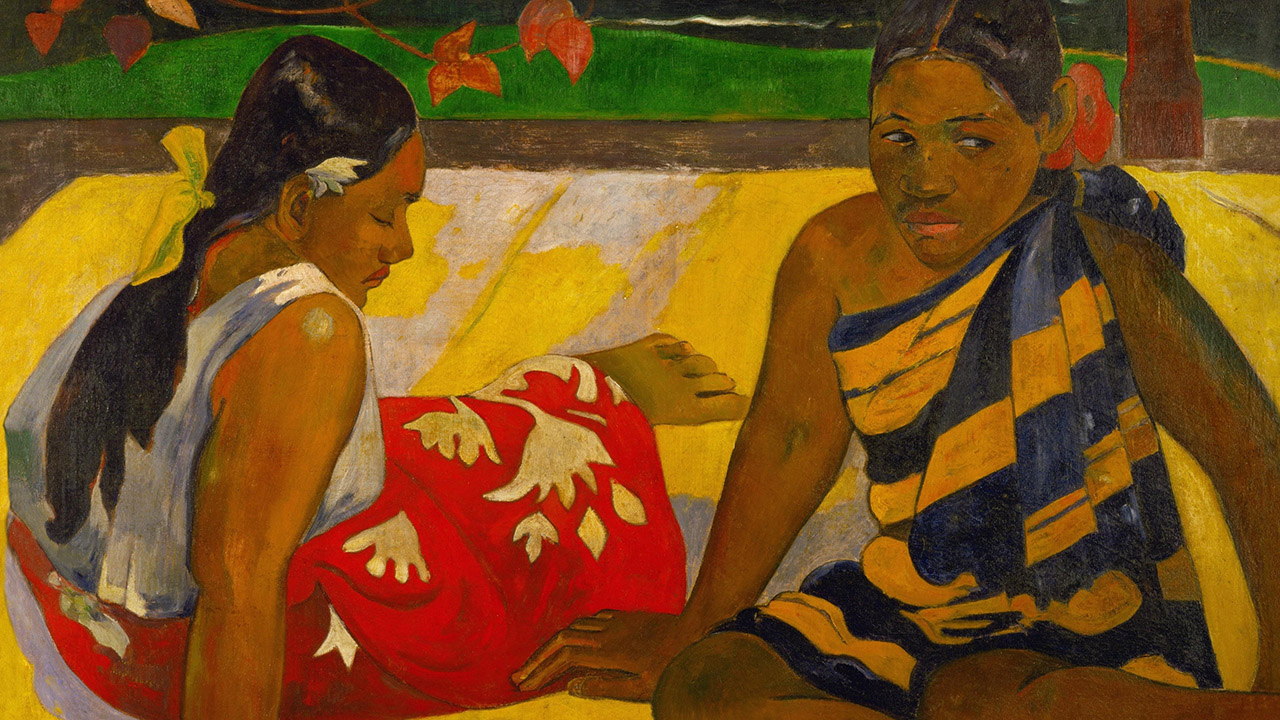
1. Juni 1891 Paul Gauguin beginnt sein Leben in der Südsee, Stichpunkt Stichtag WDR
Paul Gauguin was born to Clovis Gauguin, a journalist, and Alina Maria Chazal, daughter of the socialist leader and early feminist activist Flora Tristan. At the age of three, Gauguin and his family fled Paris for Lima, Peru, a move motivated by France's tenuous political climate that prohibited freedom of the press. On the trans-Atlantic.

Blue Trees Paul Gauguin Hand Painted Oil Painting Etsy Paul gauguin, Oil painting
Paul Gauguin's (1848-1903) famous image as the original Western "savage" was his own embellishment upon reality. That persona was, for him, the modern manifestation of the "natural man" constructed by his idol, the philosopher and writer Jean-Jacques Rousseau (1712-1778). Gauguin's rejection of the industrialized West led him to embrace.

The Flageolet Player on the Cliff Paul Gauguin schilderijen Paul Als reproductie kunstdruk of
In the far-flung islands of French Polynesia lies the final resting place of one of the world's most revered and controversial Post-Impressionists: Paul Gauguin (1848-1903). Today, over 100 years after his death, his figure still looms large over the islands, with his name used liberally as a drawcard for affluent tourists.
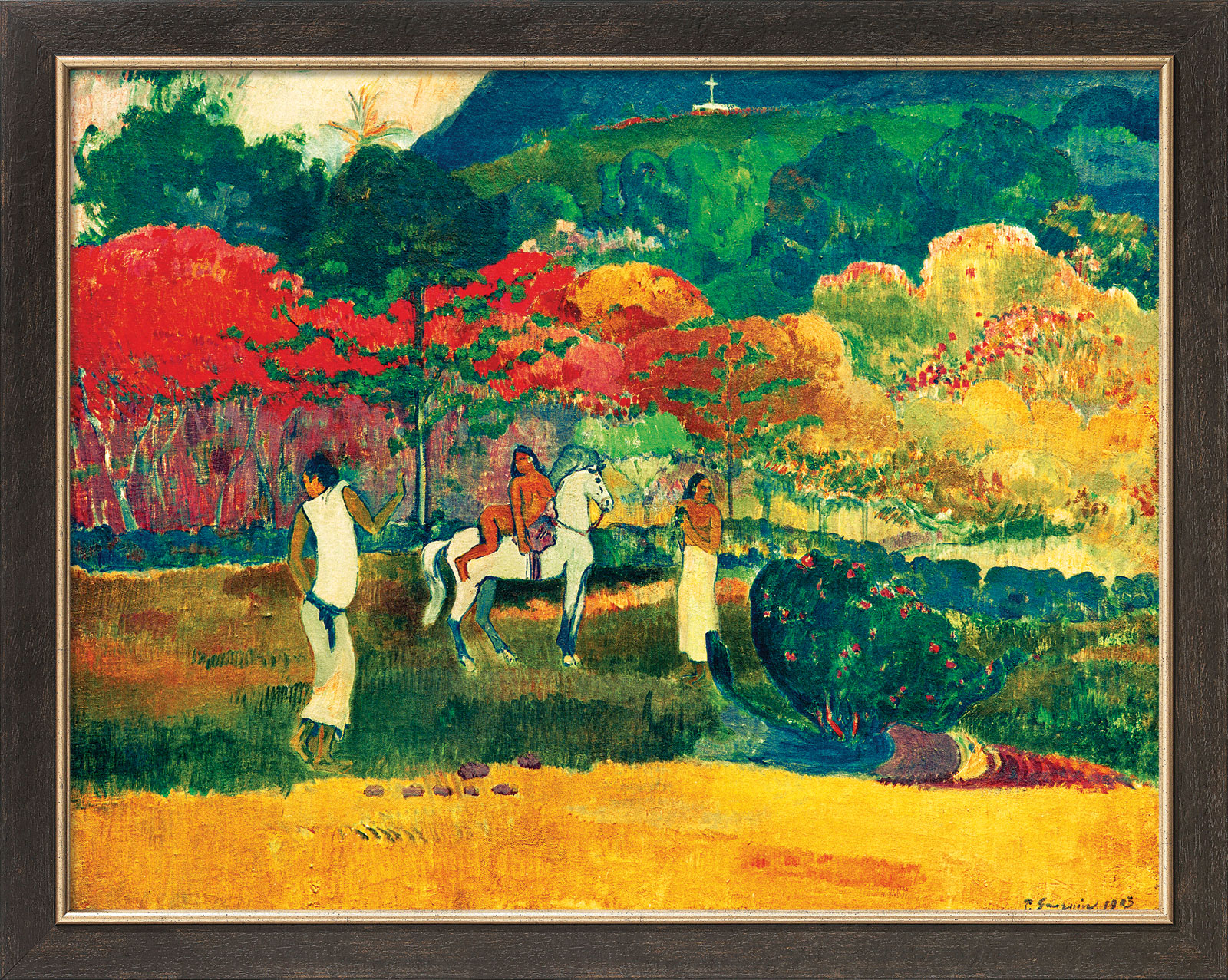
Bild "Frau mit weißem Pferd" (1903), gerahmt von Paul Gauguin kaufen ars mundi
Eugène Henri Paul Gauguin (1848-1903) was a French neo-impressionist painter whose vivid paintings with their flat, bold colours and use of mystical and ambiguous symbols revolutionised art.

Sacred Spring, 1894 Paul Gauguin
Paul Gauguin was a French Post-Impressionist artist who developed a distinctive painting style characterized by his thick, bold, expressionistic brushstrokes. To achieve an extra smoothness and flow in his paintings, Gauguin often added wax to his paints. His use of expressive colors, flat planes, and simplified, distorted forms exerted a.